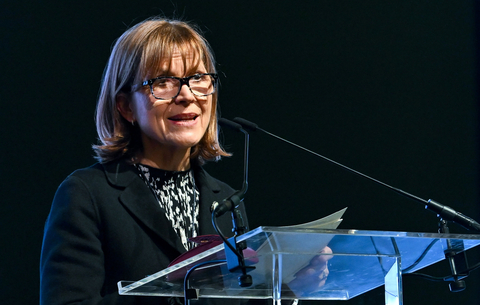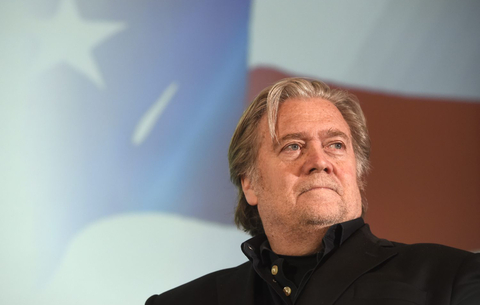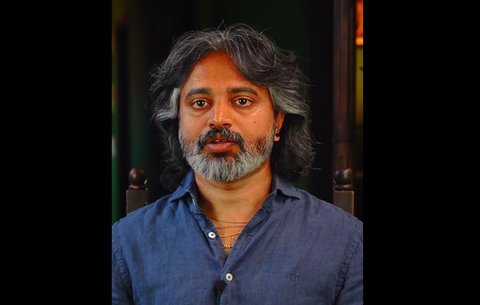The Outcome
The left-liberal coalition emerged stronger than expected from last week's elections. Ferenc Gyurcsany, the re-elected prime minister, must now secure partners for his budgetary reforms. His former rival, Viktor Orban, who after some hesitation accepted responsibility for the Right's election defeat, must now rethink his strategy and his own role.
Perhaps the most wounding event of the night for Viktor Orban's supporters was when Ferenc Gyurcsany ended his victory speech by asking the crowd to sing the Hungarian national anthem. Fidesz had campaigned on the slogan "Hungarian interests must not be a minority in its own homeland." A presenter on the TV news channel Hir TV commented on the fact that the assembled left-wing sympathisers had sung the "prayer of the nation" to the accompaniment of a tape recording. The impression given was that those left-wingers would have been unable to sing their anthem without the help of a recorded crib sheet.
This single event gives an excellent summary of the main reasons behind the election result. The leaders of the Right have spent the past few years convincing themselves and their followers that they can only be deprived of their rightful victories if dark forces and conspiracies intervene to stop them. Theirs was a cause of values, morality and faith, whereas the other side was guided by nihilism and self-interest. The Socialists' victory party counterbalanced this: the party's red flag was smaller than the national tricolor, and Gyurcsany's speech made it clear that he did not regard the triumph as a licence to govern without opposition.
This is the first occasion since the regime change of 1989 when a ruling coalition has been reelected. But this was not because of the government's performance over the past four years. Like all elections since 1990, this one was driven by protest votes. The difference was that the majority of voters were saying no to the leaders of the opposition, not the government parties, and they were rejecting the prospect of a two-party parliament as well. For two thirds of this past parliament, the country had been in favour of a change in government. But when it came to voting, the opposition manifesto, that Orban claimed had been written by 3.2m people, won a million votes less than that.
It is of course wrong to say that the winner got it all right, and the loser got it all wrong. Nonetheless, the Socialists' campaign, focused on Gyurcsany himself, seemed fresh and young when compared with Fidesz's montonous offering. One Fidesz rally looked much like any other. While much the same could have been said of Socialist rallies, at least there were mood changes. The Left has never attracted so many young people to its events.
Gyurcsany was able to evoke an emotional response from voters with apparent honesty and directness. But Orban had peaked last spring. He was only able to consolidate during the campaign, but he was unable to go beyond the role of "saviour of the nation" that he had already created for himself. The results, and in particular the turn-out figures, show that Fidesz overestimated their ability to mobilise their supporters and underestimated the impact of their negative and semi-legal campaigning techniques. There is no question that Socialist campaign strategists also used dubious techniques, but they did so less crudely - even though it was Fidesz that presented itself as the more morally upright of the two parties.
The Socialists' unexpectedly wide margin of victory can be explained by the fact that while the Socialists kept improvising, Fidesz stuck to their original campaign plan even as circumstances changed. Istvan Mikola was personally chosen by Viktor Orban as his second-in-command to the surprise even of fellow party members. Mikola managed to undermine years of systematic campaigining in just a few comments.
Even then, however, he was only 'retouched' out of the picture. The party's leaders stuck to their negative campaign even as it became clear that it was counterproductie. The Socialists had experimented with negative campaigns of their own, but abandoned them as soon as it was realised that they were effective only in shoring up their base.
They were thus able to collect new voters at the end of the campaign.
Following his poor showing in the first round, Orban unleashed a series of apocalyptic visions, talking up the threat of economic collapse. But they created no added tension, since he had said it all before. Four and eight years ago, turn-out rose in the second round of elections, but this time round, voter participation was four per cent lower. This illustrates the ineffectiveness of Orban's attempts to mobilise his own supporters.
A further strategic error on the part of Fidesz was that it expected a two-party parliament to emerge after the elections. The Socialists had always planned on the Free Democrats getting in, and were hoping to have liberal voters available as a reserve in the second round. The Hungarian Democratic Forum also gained parliamentary representation, which pushed the balance back slightly towards the Right. But Orban made it clear immediately after the second round that he blamed a lack of unity for the failure to achieve a change in government. It was only on Monday that he accepted responsibility for the failure, even offering his resignation. New officials will be elected at a party conference in May, but for the time being, there does not seem to be an alternative to Orban.
The balance of power in parliament is now more favourable to the coalition than it was ofur years ago. It is clear that the Socialists, who almost have an absolute majority, are not as dependent on their junior coalition partner as they were four years ago. But there is no real alternative to a left-liberal coalition. The MDF has already stated that it will remain in opposition, though it may be available to the Socialists as a strategic ally, in particular with regard to budgetary matters.
The Socialists and the Liberals have, however, made it quite clear with their joint campaigning, that they plan to work together in the next parliament. This is underscored by the coalition's second round successes. Where necessary, liberal voters were disciplined in voting for Socialist candidates, and vice versa. Thus, the new parliament will be different from the 1994 parliament, where the same two parties entered an alliance on a basis of mutual mistrust. Nor will it be the same as the left-liberal coalition of 2002, which was based on a single common goal: Orban should not get back in power.
But the returning prime minister will have to deal with the fact that most voters did not vote for the liberals, whose programme is slightly more radical than the Socialists'. There is a long list of reforms which will be necessary to bring order to the state budget, most of which will tread on somebody's toes.
János Dobszay









